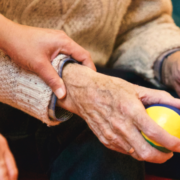Hair could predict heart attacks and other conditions
 Your hair could be hiding a clue to an impending heart attack according to an article from AARP Magazine. The article outlines an Israeli-Canadian study that took place in 2010 and found high levels of a stress hormone in hair follicles could be a significant predictor of heart attack. In a sense, the study found corresponding evidence between chronic stress and heart disease.
Your hair could be hiding a clue to an impending heart attack according to an article from AARP Magazine. The article outlines an Israeli-Canadian study that took place in 2010 and found high levels of a stress hormone in hair follicles could be a significant predictor of heart attack. In a sense, the study found corresponding evidence between chronic stress and heart disease. 
Before the study was conducted in 2010, doctors could only rely on subjective questionnaires to assess a patient’s stress level and its link to heart disease. This study presented a measurable sign of chronic stress by tracing cortisol, which shows up in the hair shaft.
Gideon Koren, a toxicologist at the University of Western Ontario, was one of the study’s authors. He said that measuring cortisol levels in the hair can show how long a person has been stressed. Measuring cortisol through urine and saliva is also possible, but it only shows stress at the moment instead of over long periods time.
Koren told AARP Magazine, “Hair grows about one centimeter [a fraction of an inch] a month, so if we take a hair sample six centimeters [2.6 inches] long, we can measure the cortisol level and determine stress levels for the past six months.” He added that this was a critical realization, because it’s chronic stress that kills.
An article from Science Daily in 2011 mentions an updated version of measuring cortisol in hair that could be used to study its affects on a variety of diseases such as depression, diabetes and heart disease.
This article defines cortisol as a hormone produced by the adrenal glands. Its primary function is to help maintain body metabolism. When the body is put under stress, either psychological or physical, cortisol levels increase to allow the body to respond to the situation.
In this study, researchers found hair cortisol levels correlated positively with waist-to-hip ratio and waist circumference. In other words, people with higher cortisol levels showed higher abdominal obesity.
The reason examining hair could be used as a noninvasive benchmark of cortisol levels in the body is because there was no significant difference in cortisol due to gender, hair color, frequency of shampooing or by hair products. There was, however, a decrease in cortisol levels in hair that was dyed or bleached that was borderline significant, according to the study.
In the end, studying cortisol in the hair could become a screening tool to identify individuals at high risk of common conditions.
Physicians Choice Private Duty currently serving Omaha, Eastern Nebraska and Western Iowa” provides seniors and their families a complete understanding of the available care options and helps families maneuver through the challenges of the system. All Physicians Choice Private Duty services are directed by registered nurses or social workers with no long-term contracts. Contact us today for help with your senior care needs.
“Physicians Choice Private Duty solves the challenges families face in caring for aging parents, with a focus on strategies that keep them in their homes. To learn more about our solutions, visit https://private-duty.pchhc.com/services/“



 According to the Robert Wood Johnson Foundation, three out of four adults over the age of 65 have multiple chronic conditions. An article from the
According to the Robert Wood Johnson Foundation, three out of four adults over the age of 65 have multiple chronic conditions. An article from the 

 Todays post features real-life stories of how Physicians Choice Private Duty helped an elderly person and their loved ones through a tough decision-making process that ensured each persons individual care needs were met. Names have been changed to respect privacy.
Todays post features real-life stories of how Physicians Choice Private Duty helped an elderly person and their loved ones through a tough decision-making process that ensured each persons individual care needs were met. Names have been changed to respect privacy.

 In an earlier post, we discussed methods that were being used to
In an earlier post, we discussed methods that were being used to 

 If you’re struggling to explain to a child how Alzheimer’s is affecting their grandma or grandpa, you’re not alone. And there are a number of children’s books that tackle the disease.
If you’re struggling to explain to a child how Alzheimer’s is affecting their grandma or grandpa, you’re not alone. And there are a number of children’s books that tackle the disease. 

 Before placing a loved one in a nursing home, you’ll undoubtedly want to check and compare the track records of numerous care facilities. Luckily, two websites make the task of reviewing problems at nursing homes, and comparing one nursing home in your area to another, quick and easy.
Before placing a loved one in a nursing home, you’ll undoubtedly want to check and compare the track records of numerous care facilities. Luckily, two websites make the task of reviewing problems at nursing homes, and comparing one nursing home in your area to another, quick and easy.



 Todays post features real-life stories of how Physicians Choice Private Duty helped an elderly person and their loved ones through a tough decision-making process that ensured each persons individual care needs were met. Names have been changed to respect privacy.
Todays post features real-life stories of how Physicians Choice Private Duty helped an elderly person and their loved ones through a tough decision-making process that ensured each persons individual care needs were met. Names have been changed to respect privacy.

 NFL legend Reggie White died in his sleep at the early age of 43. Although the medical examiner who performed an autopsy on White said a “fatal cardiac arrhythmia” was the cause of death there may have been another contributing factor: sleep apnea.
NFL legend Reggie White died in his sleep at the early age of 43. Although the medical examiner who performed an autopsy on White said a “fatal cardiac arrhythmia” was the cause of death there may have been another contributing factor: sleep apnea.
 Elder Care Chat is a bi-monthly Twitter chat hosted by
Elder Care Chat is a bi-monthly Twitter chat hosted by